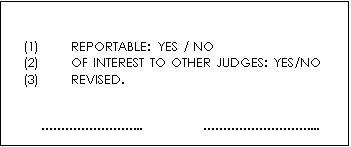IN THE HIGH COURT OF SOUTH AFRICA
GAUTENG DIVISION, PRETORIA

CASE NO.: A105/2022

In the matter between:
LETSEMA LESIA | Appellant |
and | |
THE STATE | Respondent |
JUDGMENT
van der Westhuizen, J
[1] The appellant was convicted in the Regional Court, Vereeniging, on a charge of rape (Section 3 of the Sexual Offences and Related Matters Act, 105 of 1997) and on a charge of contravening section 49(1)(a) of Act 13 0f 2002 (Illegal Immigrant). The appellant was sentenced to life imprisonment on the charge of rape and cautioned and discharged on the charge of being in the country illegally. The appellant appeals against the life sentence only.
[2] The appellant enjoyed legal representation throughout the trial.
[3] On the charge of rape on which the appellant was convicted, a minimum sentence of life imprisonment is prescribed by section 51 of Act 105 of 1997. In that regard, the appeal was directed at the imposition of the minimum sentence on the ground that it is harsh, inappropriate and disproportionate to the crime committed.
[4] The learned magistrate gave a well-reasoned judgment in respect of what an appropriate sentence would be. On behalf of the appellant it was submitted that the learned magistrate had erred in not finding substantial and compelling circumstances that would warrant a departure from the prescribed minimum sentence. Furthermore, that the learned magistrate had over emphasised the elements of deterrence and retribution by imposing the life sentence.
[5] It is clear from the record that the defence raised in the plea explanation of the appellant in respect of the charge of rape, was one of alleged consent to sexual intercourse. Sexual intercourse was admitted. It is to be noted that the appellant did not allow cross-examination of the complainant and furthermore did not testify in his defence, nor in mitigation. His personal circumstances were advanced by his legal representative on sentencing. Those were the normal circumstances of age, being a first offender and the like.
[6] The arguments raised in the heads of argument on behalf of the appellant were nothing more than “technical issues” when relying upon various authorities that lay down certain approaches in respect of the imposition of a minimum sentence. Meagre “facts” of the present instance were advanced in support of the submission why it was warranted to deviate from the minimum prescribed sentence in casu. Those were:
(a) The fact that the offence fell within the ambit of section 51(1) of Act 105 of 1997 did not mean that the prescribed minimum sentence would be proportionate or just in the present circumstances;
(b) The over-emphasising of one or more of the elements of punishment would lead to an unbalanced sentence being imposed.
Broad principles were advanced.
[7] Against that background, it was however conceded on behalf of the appellant that:
(a) Rape is a serious offence and that the public needs to be protected from such offence being committed;
(b) A substantial period of imprisonment was warranted;
(c) Aggravating circumstances existed, namely: the incident had a negative psychological impact upon the complainant; the complainant was raped more than once by each of the two perpetrators. The complainant had to be rescued from the appellant and his co-assailant by community members;
(d) It was submitted on behalf of the appellant that the J88 form did not record serious injuries. Although it was conceded on behalf of the appellant that the absence of serious physical injuries during the incident in itself does not constitute substantial and compelling circumstances, but that it was a factor to be taken into account when considering substantial and compelling reasons. This submission, in my view, loses sight of the unequivocal psychological impact of the heinous act upon the victim. Physical scars, whether serious or not, heal. However, psychological scarring does not heal and remains for ever. The Victim Impact Report described the severe effect of the rape upon the victim. The psychological consequences included: impossibility to have normal sexual intercourse with her partner, she turned to alcohol abuse, attempted suicide, to name but a few. In my view, that far outweighs the absence of serious physical injuries.
[8] What is telling is the fact that the appellant did not allow the complainant to be cross-examined, presumably to keep other evidence from the court. It is further telling that the appellant did not testify, nor did he testify in respect of mitigation. The ineluctable inference to be drawn is that of no remorse on the part of the appellant. When interviewed during the compiling of the pre-sentencing report, the appellant insisted that the complainant had consented. That fact militates against an alleged acceptance of responsibility for the offence. Hence no remorse.
[9] The personal circumstances proffered at the stage of sentencing were:
(a) The appellant was 23 years old at the time of sentencing, and 21 years old at the commission of the crime;
(b) The appellant was a first offender;
(c) That the appellant was a Lesotho national, who came to the Republic with his family at the age of 14 years. That in itself is a mere neutral fact and of no consequence;
(d) The appellant lived in an area where unemployment and substance abuse were rife and full of negative influences. Again a neutral factor. Many other citizens also come from such areas without being dragged down into the gutter. The appellant apparently enjoyed employment. He enjoyed physical and mental health, despite his dire living circumstances;
(e) The probabilities of rehabilitation were sparsely stated. A mere speculative and unsubstantiated submission on behalf of the appellant was proffered in that regard.
[10] The crime was a heinous one. Not satisfied by abusing the complainant once, but she was dragged to a different spot and the appellant and his co-assailant had their way with her a second time. The complainant was raped by two co-assailants in tandem.
[11] It follows in my view that the appellant failed to prove any substantial and compelling circumstances for a deviation from the prescribed minimum sentence. The appeal against sentence cannot succeed.
I propose the following order:
1. The appeal against sentence is dismissed;
2. The life sentence is confirmed.
________________________________
C J VAN DER WESTHUIZEN
JUDGE OF THE HIGH COURT
I agree

________________________________
N TSHOMBE
ACTING JUDGE OF THE HIGH COURT
It is so ordered.
On behalf of Appellant: F van As
Instructed by: Legal Aid South Africa
On behalf of Respondent: E V Sihlangu
Instructed by: NDPP
Date of Hearing: 17 October 2023
Date of Judgment: 23 November 2023
